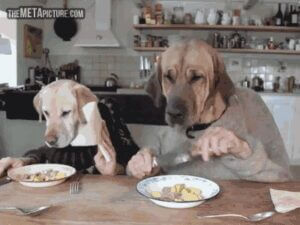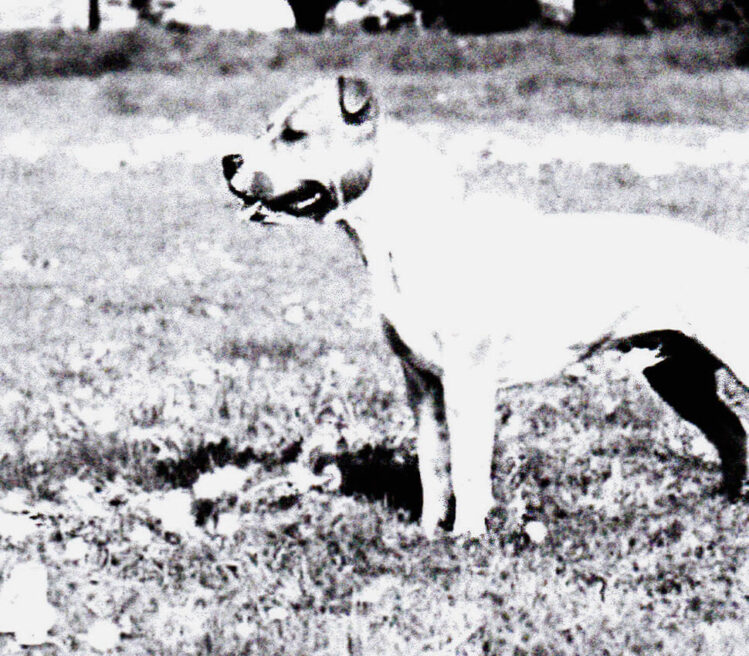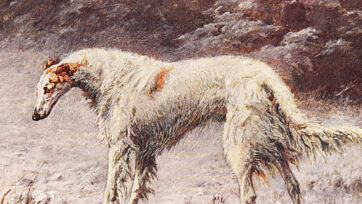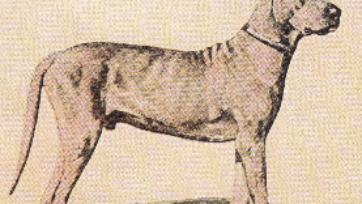
BE CAREFUL OF THE HUMAN FOODS YOU GIVE YOUR DOG
THE LESS HUMAN FOOD YOU GIVE YOUR DOG THE BETTER YOUR BEST FRIEND WILL BE
THE MOST EXTENSIVE LIST OF WHAT YOUR DOG SHOULD OR SHOULD NOT EAT
-
- Carrots: Yes, can be eaten
- Grapes and Raisins: No, cannot be eaten
- Salt: Yes but limit the amount
- Peanut Butter: Yes, can be eaten
- Eggs: Yes, can be eaten
- Salmon: Yes, can be eaten
- Chocolate: No, cannot be eaten especially dark chocolate
- Cheese: Yes but limit the amount
- Blueberries: Yes, can be eaten
- Popcorn: Yes, can be eaten
- Cashews: Yes, but limit the amount
- Macadamia Nuts: No, cannot be eaten
- Almonds: Yes, but limit the amount
- Pineapple: Yes, can be eaten
- Onions: No, cannot be eaten
- Watermelon: Yes, can be eaten
- Cottage Cheese: Yes, but limit the amount
- Bread: Yes, can be eaten
- Blackberries: Yes, can be eaten
- Avocado: No, cannot be eaten
- Corn: Yes, can be eaten
- Tomatoes: Yes, but limit the amount
- Green Peas: Yes, can be eaten
- Oatmeal: Yes, can be eaten
- Coffee or Tea; No, cannot be eaten
- Apples: Yes, can be eaten
- Garlic: No, cannot be eaten
- Broccoli: Yes, can be eaten
- Chicken: Yes, can be eaten
- Sweet Potatoes: Yes, can be eaten
- Xylitol: No, cannot be eaten
- Coconut: Yes, can be eaten
- Alcohol: No, can never be consumed
- Pork: Yes, can be eaten
- Cinnamon: Yes, but limit the amount
- Mango: Yes, can be eaten
- Nutmeg: No, cannot be eaten
- Honey: Yes, but limit the amount
- Milk: Yes, but limit the amount
- Turkey: Yes, can be eaten
- Rice: Yes, can be eaten
- Beef: Yes, can be eaten
- Lemons or Limes: No, cannot be eaten
- Raw Yeast Dough: No, cannot be eaten
- Bananas: Yes, can be eaten
- Strawberries: Yes, can be eaten
- Oranges: Yes, can be eaten
- Peanuts: Yes, but limit the amount
- Mushrooms: Yes, can be eaten
- Potatoes: Yes, can be eaten
- Celery: Yes, can be eaten
- Cherries: Yes, but limit the amount
- Shrimp: Yes, can be eaten
53 REASONS WHY
THESE FOODS ARE GOOD OR BAD
Carrots: Low in calories while a good source of vitamins, minerals, and fiber carrots are good both raw and cooked. Make sure you cut them into bite-size pieces to prevent any possible choking.
Grapes and Raisins: They contain toxic compounds harmful to dogs which can lead to kidney failure and even death.
Salt: Limit the amount of salt in your dog’s diet. Too much salt intake can lead to salt poisoning or water deprivation. These may cause vomiting, diarrhea, vomiting with seizures. In severe cases, high amounts of salt can be fatal. To prevent these bad effects, limit any salty foods you give him. These include chips or pretzels. Also, make sure your dog has plenty of water to drink which can prevent water deprivation.
Peanut Butter: In moderate amounts, peanut butter is a healthy and safe treat for dogs. Since peanut butter is high in fat and calories too much could lead to weight gain, so make sure to limit its use. Also, use plain unsalted peanut butter.
Eggs: As long as you don’t use raw eggs they are safe and healthy for your dog. A medium egg will provide almost every vitamin and mineral needed as well as lots of protein.
Salmon: Don’t feed raw salmon to your dog because it could contain a dangerous parasite and could be fatal. Otherwise cooked, boneless salmon is safe and healthy and a great source of omega-3 fatty acids. These acids can reduce inflammation and keep your dog’s skin and fur healthy.
Chocolate: Chocolate contains theobromine and caffeine, two stimulants that dogs cannot metabolize. Some of the signs that your dog has eaten chocolate are vomiting, diarrhea, and dehydration which can lead to serious complications, such as internal bleeding, muscle tremors, seizures, and even death. Also, know that darker and less sweet varieties, like cocoa powder and unsweetened baker’s chocolate, are even more poisonous to dogs. Just remember NEVER chocolate.
Cheese: With a high fat and lactose content which in some dogs can lead to stomach pain and diarrhea, limit the amount of cheese your dog eats.
Blueberries: Blueberries are very healthy for dogs due to their disease-fighting antioxidants and significant amounts of vitamins, minerals, and fiber.
Popcorn: Popcorn can be eaten by your dog only on occasion. It often contains salt, butter, and oil that are high in fat and if overdone could lead to pancreatitis. Keep popcorn as plain as possible.
Cashews: Cashews are high in fat and calories which could lead to weight gain and pancreatitis. Keep the cashews plain, unsalted, and roasted to be on the safe side.
Macadamia Nuts: Even in small quantities macadamia nuts can be dangerous. They contain an as yet unknown toxin that can lead to vomiting, muscle weakness, tremors, hyperthermia, and depression. So these nuts are a NEVER, NEVER.
Almonds: Keep a limit on almonds. They carry the same dangers that many nuts do to dogs. They’re also not easy for dogs to digest so keep the quantities very low.
Pineapple: Like with many foods keep a limit on the amount of pineapple your dog eats. In small amounts, pineapple is an excellent healthy nutrient-rich snack.
Onions: Onions contain N-propyl disulfide, a compound that is toxic to dogs. This can result in red blood cell damage, reducing their ability to carry oxygen through the body. This can lead to a condition called anemia. Just remember everything onion is toxic to dogs.
Watermelon: The fruit of the watermelon is very healthy for dogs but not the rind or seeds which can cause choking.
Cottage Cheese: Dogs can have cottage cheese only in small amounts because too much can cause digestive problems.
Bread: For most dogs plain white or whole-grain bread is safe. Before thinking about giving your dog a slice of bread make sure it doesn’t have anything extra like raisins and too much can also be fattening.
Blackberries: Either fresh or frozen blackberries are safe and healthy for your dog. Low in calories and rich in vitamins, minerals, and antioxidants, as well as a source of fiber, blackberries are a great snack.
Avocados: Never, Never, Ever give dogs avocados. If that isn’t enough then this is why: They contain a toxin called persin, which is known to be very poisonous to dogs. It can lead to fluid accumulation in their lungs and chest, which can cause breathing difficulties, oxygen deprivation, and even death.
Corn: A tablespoon of corn is a good source of vitamins and minerals and the appropriate amount for dogs. Never feed your dog corn on the cob because it could be a choking hazard or lead to intestinal obstruction. Just keep the corn plain and cooked which is safe for dogs.
Tomatoes: Only give a dog tomatoes on an occasion as long as their ripe. But not green tomatoes which can contain small amounts of tomatine, a toxic glycoalkaloid. They may not be toxic to people but anecdotal evidence suggests it may harm dogs.
Green Peas: Generally green peas are safe for dogs and are a common ingredient in many dog foods Low in calories and high in many nutrients green peas are a healthy snack for dogs. But for your dog use only fresh or frozen peas, not canned peas because they can be loaded with salt which is bad for your dog.
Oatmeal: Plain oatmeal is fine for your dog and provides vitamins, minerals, and lots of fiber. Feed only plain oatmeal, not flavored to your dog, and only in moderate amounts.
Coffee and Tea: Both are dangerous to dogs because of the caffeine. Caffeine stimulates your dog’s nervous system, which can lead to a number of symptoms, including hyperactivity, vomiting, diarrhea, elevated heart rate, seizures, and tremors. Another NEVER, EVER human food.

Apples: Along with the many healthy nutrients apples provide they can also benefit a dog’s digestive system, just make sure they are sliced.
Garlic: No, Never feed garlic to your dog. Garlic contains chemicals called thiosulfates which are toxic to dogs. What thiosulfates can do is damage your dog’s blood cells leading to anemia. Garlic can also cause symptoms like vomiting and diarrhea. In an accidental overdose of garlic, a blood transfusion may be needed.
Broccoli: In moderation, raw or cooked broccoli is fine for dogs to eat. While there are many nutritious elements of broccoli it does contain isothiocyanates, compounds that may irritate your dog’s digestive system if too much is consumed. So use sparingly and not often as a dog snack.
Chicken: Chicken is one of the most common ingredients in dog food and is healthy and safe when cooked. An excellent source of protein you can feed your dog chicken on its own or in combination with their regular food. Don’t feed raw chicken though, it could cause Salmonella and always remove chicken from the bone, chicken bones can cause choking, suffocation, and even may puncture the dog’s digestive tract.
Sweet Potatoes: Yes, they are safe and healthy in moderate amounts for your dog to eat. Sweet potatoes are easy for dogs to digest and are rich in vitamin A, which is important for your dog’s eye health and immune system. They also can be added to your pet’s regular food or be used as a treat.
Xylitol: Never, its a sugar substitute that’s often found in candy, chewing gum, baked goods, even toothpaste. If a dog consumes xylitol a rapid drop in blood sugar levels can occur. Also symptoms like muscle weakness and seizures. In extreme cases, xylitol can lead to serious conditions such as liver damage, even death.
Coconut: Coconut is safe for dogs to eat as long as it’s in moderation because of its high-fat content and loads of calories. To avoid weight gain use one-fourth teaspoon to 1 tbsp is an appropriate serving size. Coconut has been found in some studies to benefit a dog’s skin and fur.
Alcohol: No, dogs should never have alcohol, even in small amounts it can lead to ethanol poisoning. This can lead to tiredness, lack of coordination, seizures, vomiting, and diarrhea. Don’t forget alcohol isn’t in just booze but perfumes, mouthwash, and cleaning products. Keep anything with alcohol in it far away from dogs.
Pork: Dogs can eat pork as long as it’s cooked without spices, seasonings, or sauces. Never feed raw or uncooked pork to your dog to prevent possible bacterial infection. Also never feed processed forms of pork, such as ham or bacon because of their extremely high salt content.
Cinnamon: Can be fed but limit it. Large quantities of cinnamon can irritate their mouths and digestive system. If your dog inhales cinnamon powder, it can cause coughing, choking, and breathing difficulties. Even foods with cinnamon as an ingredient can cause problems.
Mango: Yes, dogs can have mango as an occasional treat. They are very healthy in small amounts but peel the skin first as it could be hard to digest. Also, remove the pit to prevent choking.
Nutmeg: No, don’t feed nutmeg to your dog. It contains myristicin, a compound that is toxic to dogs and may lead to disorientation, increased heart rate, high blood pressure, dry mouth, upset stomach, and seizures. Make sure your dog doesn’t consume anything with nutmeg as an ingredient.
Honey: Yes but limit it. Honey has high sugar content adding up the calories and leading to weight gain. Only use as a snack once in a while.
Milk: Limit its use. Dogs tend to be Lactose intolerant which can lead to loose stools, gas, vomiting, upset stomach, and diarrhea. Dogs that can tolerate milk should never have more than a few tablespoons per day.
Turkey: Dogs can eat turkey but it should be boneless and skinless. Also avoid turkey that’s been seasoned and stuffed to prevent the dog from eating potentially dangerous ingredients, such as onions and garlic.
Rice: Plain and cooked brown or white rice can be eaten by dogs. You can combine rice with turkey or chicken for increased protein. It may also help relieve an upset stomach.
Beef: Yes, dogs can eat lean beef. Beef is an excellent source of protein, vitamins, and minerals. It should be plain without any sauces and seasonings.
Lemons and Limes: No, they are toxic to dogs. They contain psoralen, which can cause dogs to have gastrointestinal symptoms like vomiting and diarrhea. Large quantities of psoralen will cause dangerous problems such as muscle tremors, difficulty walking, liver failure and, even death.
Raw Yeast Dough: Cannot eat. It is very dangerous to dogs because yeast cells produce alcohol as they ferment, which can lead to alcohol poisoning and death. This is a Never, Never.
Bananas: Yes, they can be eaten but like with most human foods only in moderation. Bananas are rich in fiber and many vitamins and minerals. They can be mashed into your dog’s regular food or given as a treat.
Strawberries: Yes, they are a healthy treat for your dog, again in moderation. Strawberries are high in nutrients, antioxidants and, fiber. Make sure you cut them into small pieces to prevent possible choking.
Oranges: Yes, they can be eaten in small quantities. High in nutrients and low in calories they can be a healthy treat. But there is a lot of acid in oranges and can cause an upset stomach in some dogs.
Peanuts: Limit the amount. If plain and unsalted they are safe for your dog in small amounts. Make sure the peanuts are plain otherwise they contain a lot of salt which is harmful to dogs, just a few nuts are enough or they can lead to weight gain because of the fat content.
Mushrooms: If store-bought mushrooms such as portobellos are safe for dogs to eat. Only use plain mushrooms that haven’t been combined with extra ingredients, such as garlic and onions, which can be toxic. Be careful about wild mushrooms because I have known of some dog’s dying from mushroom poisoning.
Potatoes: Yes, can be eaten if plain and cooked. Never use raw potatoes because they contain solanine, a compound that is toxic to dogs. Cooking potatoes reduce their solanine levels. Still, just keep them plain and cooked.
Celery: Dogs and celery are fine together in small amounts. They are very healthy for dogs but cut them into small pieces to prevent choking and easier digestion.
Cherries: Yes, but limit the amount as long as their fresh and pitted. DON’T let your dog eat the pits they contain cyanide which is poisonous in large amounts and can choke him. Too many cherries can also lead to an upset stomach and diarrhea, one or two cherries is plenty.
Shrimp: You can feed plain, cooked shrimp to your dog. Shrimp is healthy food but don’t feed him raw shrimp because it could contain harmful bacteria that can make him sick. Also, make sure to remove the shell to prevent choking.
IN CONCLUSION
Always remember all dogs are different and what works for one may not for another. The environment could also play a role in this general outline. Like your kid that you have to watch constantly so does your because he can’t show or tell you there is a problem. Following guidelines like this could also hopefully extent your dog’s lifespan.


